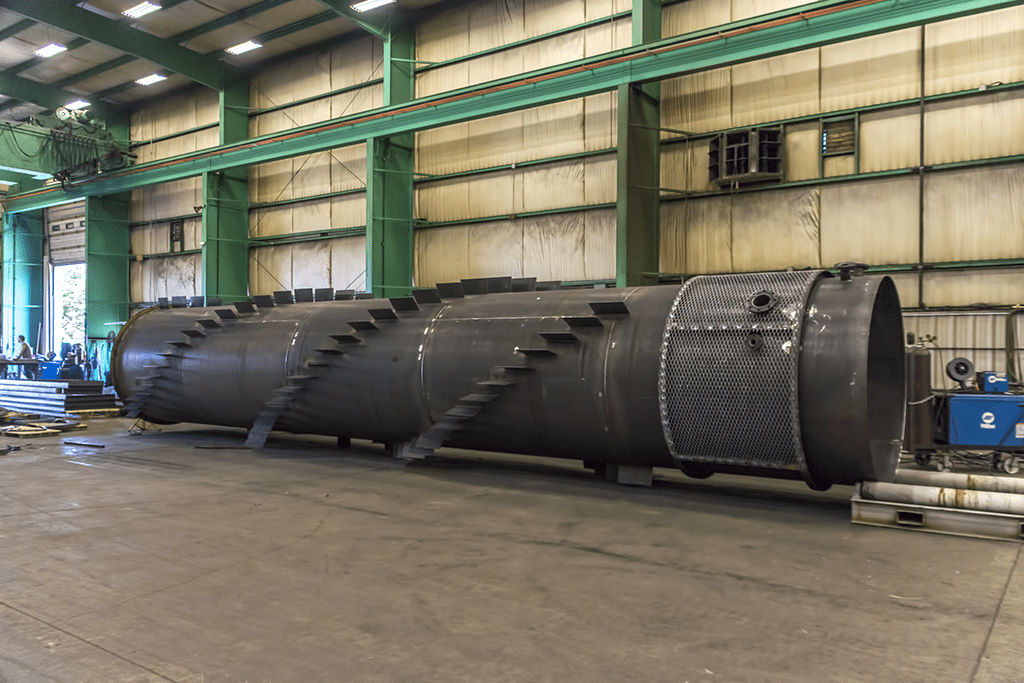Managing Project Deadlines, What it Takes to Deliver
When you hire a welding and fabrication firm to deliver a project, you need to know that company can deliver on a deadline. It’s not enough to state a deadline and accept assurances without investigation or consideration. You need to know what it is going to take to make that happen—and thus know how to tell whether you are dealing with a fabricator that knows how to make good on their promises.
Here are the key traits of companies that deliver on time:

Identifying and tackling long lead items early
For managing project deadlines, this is perhaps the single most crucial skill. When you are discussing a project with a fabricator, make sure you are both on the same page about what is going to require a longer lead time and what can be done about it over the course of the project. It only takes one item started too late to undermine your entire timetable, so invest the time to get this sorted out thoroughly.
Getting necessary machining done in advance
When a project hits the shop floor, your welding and fabrication team should not be scrambling to get machining done before they can proceed. There is a lot of work that can and should be done before space and effort is wholly committed to a project or item. A piecemeal approach to machining can and likely will lead to project delays, with each pause acting as a big red stop light for progress.
Working backwards from the due date
You will often find that the teams most capable of delivering projects on deadline utilize a backwards approach to scheduling, starting with the due date and adding tasks as they move backwards in time to the present. It is far easier to manage projects with strict deadline requirements with an approach that starts at the finish line and adds elements like paint needs, shop build requirements, setup and scheduling as your project approaches the starting line.
Setting weekly milestones towards the end result
A schedule that utilizes weekly milestones is inherently easier for a team to keep up with. By dividing the project into discrete weekly milestones, the team will be more focused, achieve higher morale, minimize procrastination and time wasting, and ultimately deliver projects more reliably.
Staying mindful of the limits of labor
Planning that fails to account for the limitations of labor will deliver projects late almost without fail. As hours climb higher, productivity falls lower. If you’re looking at a firm that’s packing a busy schedule even fuller, it doesn’t matter if they theoretically have enough hours to get your project done in time—it will not happen.
Making sure resources are purchased and allocated
If it is necessary for the project, it needs to be bought as early as possible, or set aside from existing stock. When you talk about your project with a team you are considering hiring, find out how early they plan to have your materials in place. A single shipping error should not obliterate any hope of keeping deadlines. This is especially true when looking at items with potentially high lead times.
Experience, experience, experience.
Experience reigns supreme, above all other traits on this list. Nothing better prepares a company to complete projects on time. Experienced welders and fabricators will be better equipped to spot pitfalls before they stumble into them, they will have well-tuned planning and execution for a wider variety of circumstances, and every team member will know their responsibilities for the duration of your project.
Altogether, you will find that when a company knows how to deliver, it will almost invariably have every trait on this list. If so, they will be glad to tell you about them. Managing deadlines does not need to be a nail-biting anxiety-fest. You just need to do your homework in advance, ask plenty of questions, and put the right team to the task.

